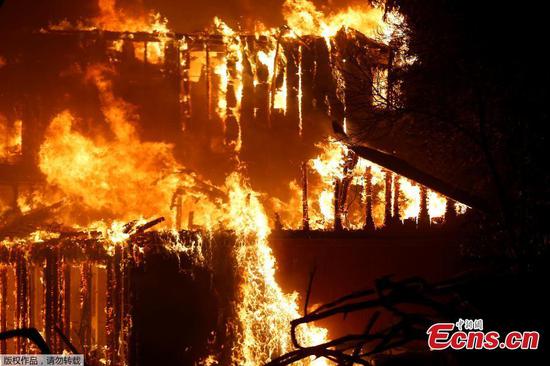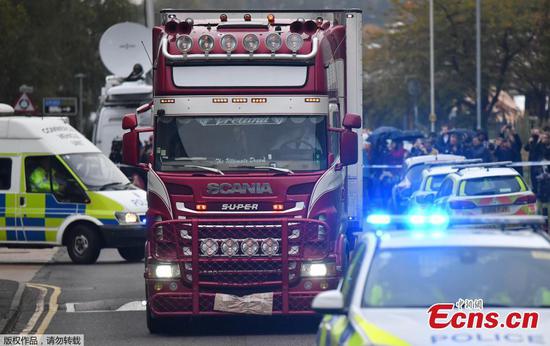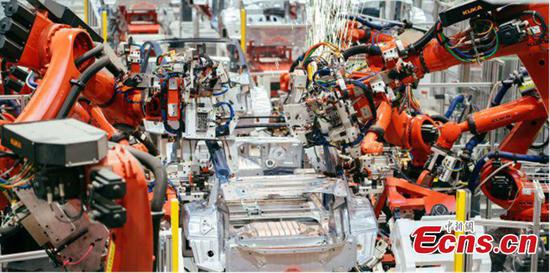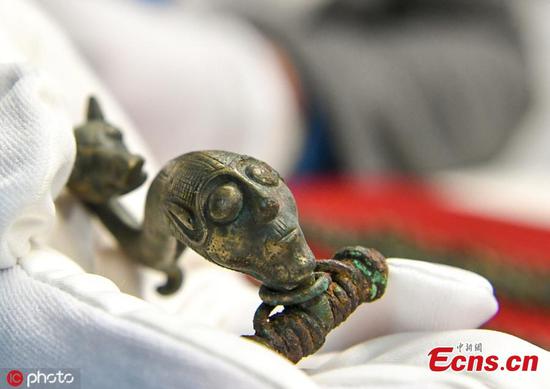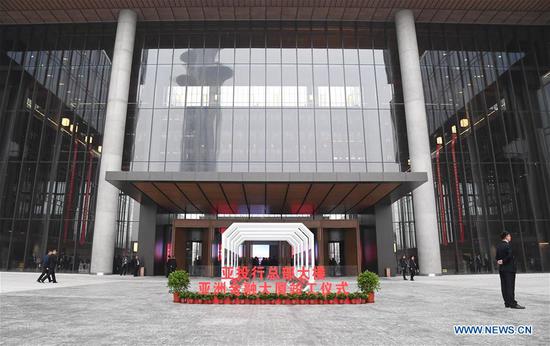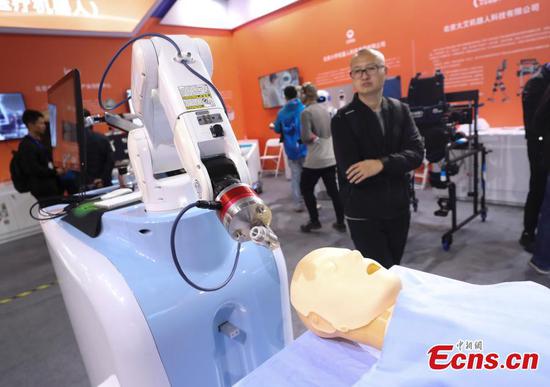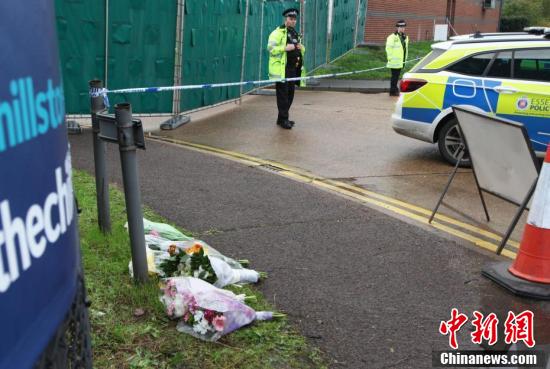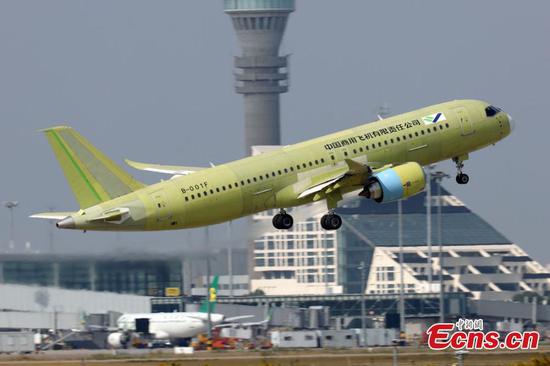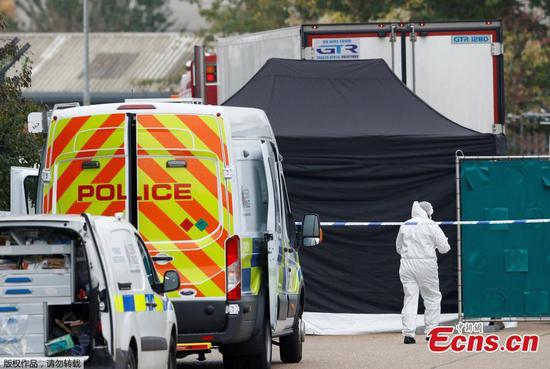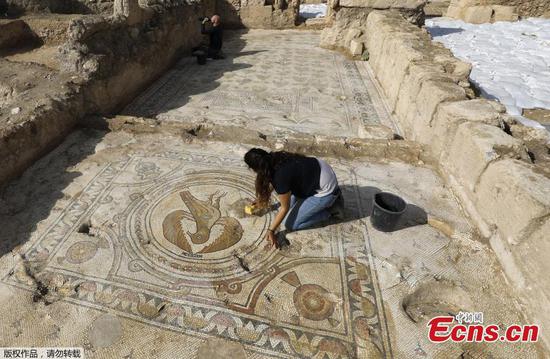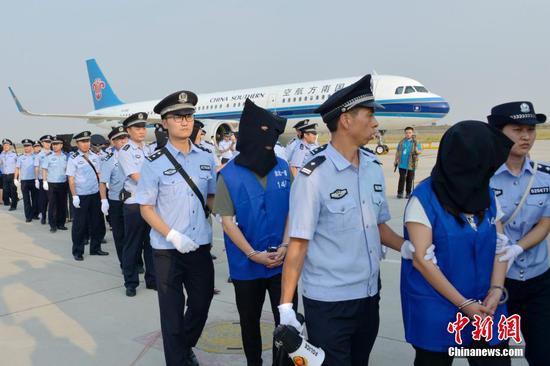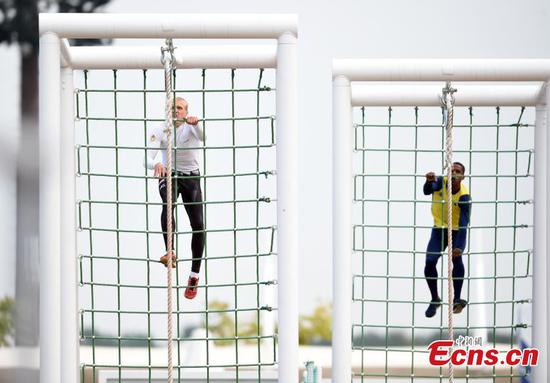Along the Wood Road and Cross Street that stretch only several hundred meters in Hong Kong's Wan Chai District, a dozen shops have shut their doors or about to close down. Posters reading "Shop For Rent" are plastered all over the outer walls of hardware stores, print shops and restaurants.
"The business is poor and the rent is expensive. We are not able to continue operation and have no option but to shut it down," an employee working at "Bicycle World", a bike-selling store that has been running for 25 years on this street, told Xinhua. "There are only two days left before we close and all products are sold at a 60 percent discount."
While the social upheaval caused by the now-withdrawn extradition bill continues to batter Hong Kong, with its economy now suffering more losses than during the SARS (Severe Acute Respiratory Syndrome) epidemic in 2003 or 2007 global financial crisis, according to analysts.
Months of destruction and chaos have dampened Hong Kong's economic outlook. A fresh research published by the University of Hong Kong predicted that the financial center would inevitably witness a negative growth in the second half of 2019 and a zero growth for the entire year.
The small and medium-sized enterprises, or SMEs, bearing the brunt of the chaos and among the most badly stricken, yearned to quell the unrest and restore order as soon as possible.
Now with more than 40 countries or regions having issued travel warnings, the number of tourists to Hong Kong has been decreasing for months, leading to an impasse for many of the 270,000 practitioners in Hong Kong's tourism sector, a major employer in Hong Kong.
Leung Fong-yuen, the chairwoman of Hong Kong Tourism Industry Employees General Union, said the impact of recent violence has spread throughout the tourism sector, with front-line tour guides being the worst affected.
Most of the over 30,000 registered tour guides and coordinators in Hong Kong are part-time practitioners whose income does not include base salary but entirely depends on the number of tour groups they receive. As the number of tour groups declined remarkably since June, their income has dropped sharply, Leung said.
"The tour guides' average monthly income from June to October decreased 80 percent compared with the earlier months of this year," she said, adding that it is a decline of around 90 percent compared with the same period last year.
The restaurant and catering sector is also among the hardest hit by the months-long unrest. Cheung Yu-yan, a member of the HKSAR Legislative Council representing the catering functional constituencies seats, said on Saturday in a local radio program that the sector is facing a difficult situation in which 200 to 300 restaurants have been closed.
Yeung Wai-sing, the chairman of the Association for Hong Kong Catering Services Management, said if the current situation continues, there could be a "catastrophic wave of closures" after the 2020 Lunar New Year, and it is estimated that 1,800 restaurants will be closed and more than 20,000 employees affected.
The ongoing turmoil has not only affected restaurants that cater to tourists, but has given a blow to restaurants that cater to local residents. The violent clashes in Hong Kong have dented its economy, causing incomes to decline and making people less willing to spend, Yeung said.
"The catering industry has suffered a 35 percent slump since June. In the first week of October, revenues of some restaurants even tumbled 50 percent," said Wong Ka-wo, president of the Hong Kong Federation of Restaurants and Related Trades. He estimated a loss of 10.5 billion Hong Kong dollars in the industry over the past four months.
As mobsters stage flash-mob-style demonstrations over almost every weekend since June, shops located in affected areas have to suspend business in the early afternoon. A snack shop owner surnamed Lee told Xinhua that the business was usually doing best at weekends but now he was forced to close the door.
"The rioters are hateful and selfish. They are destroying our lives, destroying the beautiful Hong Kong," Lee said.
Wong, a proprietor of a bar in Central District, said he was not hopeful at all for the upcoming Halloween holiday. "There could be a decrease of at least 10 to 20 percent in revenues compared to last year," he projected, adding that a further decline of 30 percent is expected in off-season sales. He is also considering to slash working hours of part-time employees to curtail the costs.
Vice Chairman of Hong Kong Bar and Club Association Chin Chun-wing noted that the mass transit railway (MTR) ended train services early for days to repair the damage, and as a result, the residents have to go home early too, thus causing a shrinking number of bar visitors.
"What is most needed for now is to stop violence and put an end to the chaos," Wong said. "Only when peace and reason return, can our society go back to normal and Hong Kong go back on track. By that time small businesses like us would be able to heal our wounds and set sail again."









